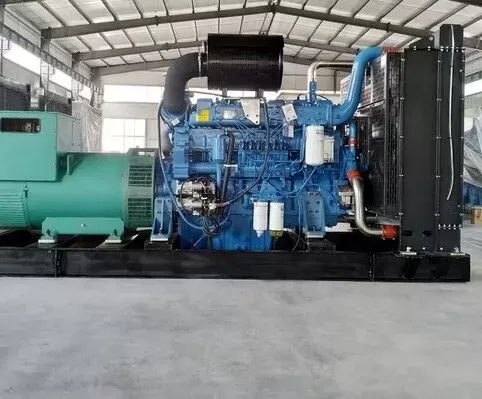Notifications

5 minutes, 39 seconds
-12 Views 0 Comments 0 Likes 0 Reviews

Emergency Diesel Generators: Ensuring Reliable Backup Power for Critical Infrastructure
Emergency diesel generators (EDGs) are vital for maintaining continuous power supply during grid failures or system disruptions. Used across sectors such as hospitals, data centers, commercial buildings, military facilities, and high-risk industries like chemical plants, EDGs ensure that essential operations remain uninterrupted. These China Generator Sets are designed to automatically start and deliver reliable power within seconds of a failure, playing a key role in safety, operational stability, and risk mitigation.
To select and implement an effective EDG system, it is essential to understand its working principles, selection criteria, performance requirements, control systems, startup and load management, and supporting components like cooling and fuel systems.
Short-Duration Operation
EDGs are typically designed for limited operation—up to 12 hours—to support critical loads until the main power supply is restored. They must be capable of running at full load without failure during this period.
Standby Functionality
EDGs remain inactive during normal conditions, automatically activating when a power outage is detected. Once power is restored, the generator shuts down and returns to standby.
High Reliability and Rapid Response
Quick response time is essential—usually within 10 seconds. Automatic control systems enable immediate startup and load connection, minimizing downtime and safeguarding operations.
Load Adjustment Capability
EDGs must adapt to fluctuating load conditions, especially during transitions between backup and grid power. Effective load regulation ensures system stability and prevents performance issues.
Load Calculation
Accurate calculation of emergency load requirements is critical. This includes accounting for starting surges of motors and other equipment to ensure the generator can handle peak demand.
Rated Capacity
EDGs must be rated for continuous operation based on atmospheric conditions and load type. A 12-hour rated capacity is commonly used for emergency applications.
Parallel Generator Operation
Using multiple generators in parallel offers flexibility, scalability, and redundancy. Matching generator models and capacities ensures balanced operation and reliability.
Backup Configuration
In critical environments, dual or multiple generator setups provide failover support. If one unit fails, another seamlessly takes over to maintain continuous power.
Engine Performance
High-speed, turbocharged diesel engines are standard in EDGs due to their compact size, fuel efficiency, and ability to handle high loads. Turbocharging boosts air intake and performance.
Generator Output Stability
Synchronous generators are preferred for their ability to deliver stable voltage and frequency under varying load conditions. High regulation precision is essential for power quality.
Noise Reduction
Soundproof enclosures and exhaust silencers are employed to meet noise regulations, especially in urban or sensitive areas. Additional soundproofing may be required for compliance.
System Reliability
Reliable components and rigorous quality testing are essential. Regular maintenance—such as inspections, oil changes, and filter replacements—is critical to readiness and performance.
Automatic Start/Stop
Upon detecting a power loss, the control system initiates generator startup. When the main supply is restored, the generator shuts down and resumes standby mode automatically.
Delay Confirmation
To avoid false starts caused by short-term fluctuations, a brief delay (typically 3–5 seconds) is built in before activation.
Load Management
After startup, the system monitors and adjusts output to match load demands. Some systems include load shedding to optimize performance and prevent overload.
Cooling System
EDGs may use air or water cooling based on size and application. Air-cooled units are suitable for small generators, while water-cooled systems offer greater efficiency for larger installations.
Fuel Supply System
A reliable fuel supply is essential for uninterrupted operation. Components include tanks, piping, and filters. Backup fuel tanks and routine checks help prevent contamination or supply failure.
Emergency diesel generators are indispensable for protecting critical operations during power outages. Proper selection, configuration, and maintenance of these systems ensure they can perform reliably when needed most. With rapid response capabilities, load adaptability, and robust control systems, well-designed EDG solutions enhance operational resilience and safety across diverse industries. Investing in quality equipment and proactive upkeep guarantees that backup power will be available precisely when it’s needed—safeguarding both assets and lives.Know more about Google SEO Directory
Diesel Generator Set Gas Generator Set Inverter Generator Containerized Generator Set Silent Generator Set Trailer Mounted Generator Set

